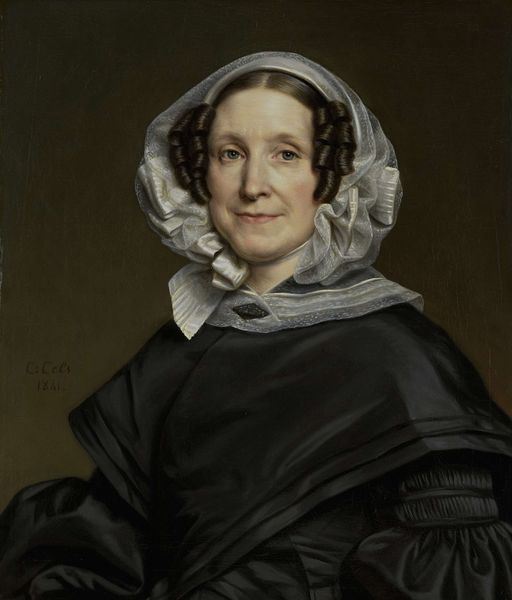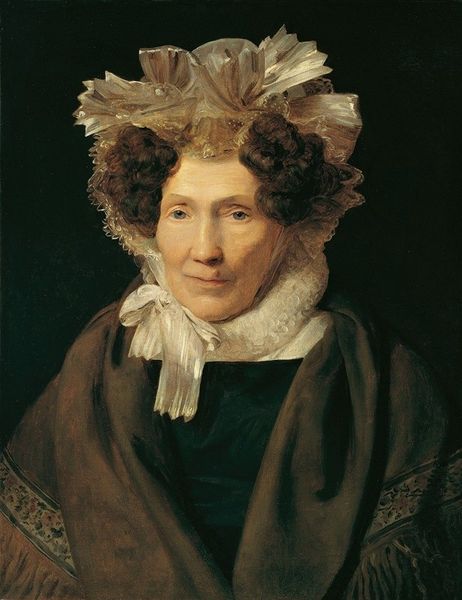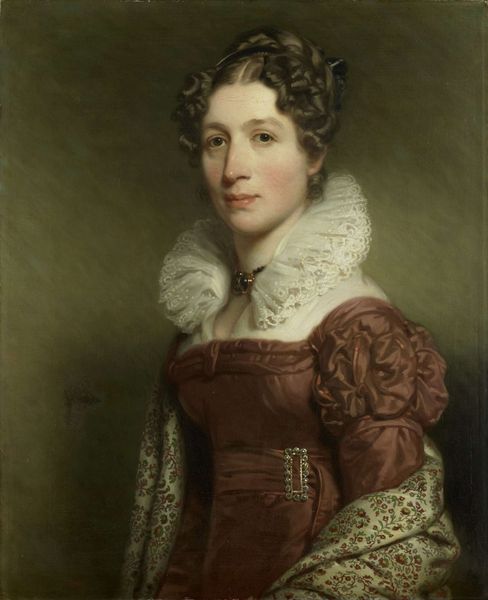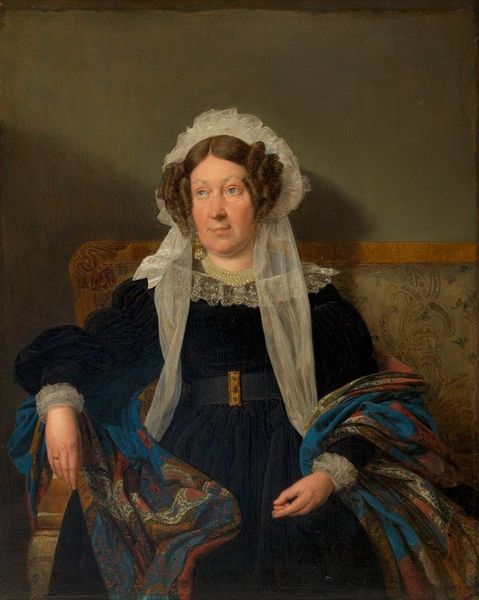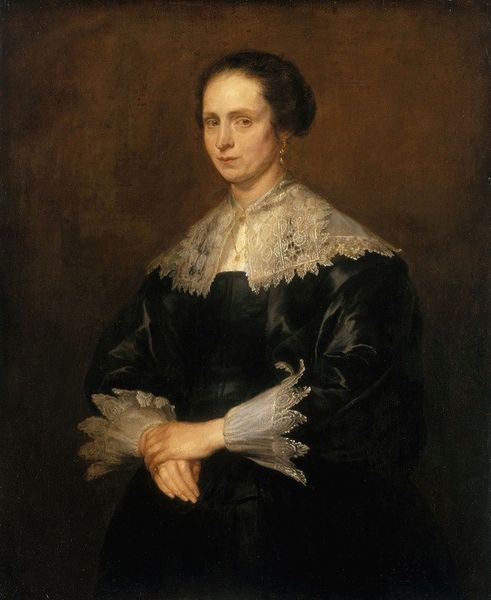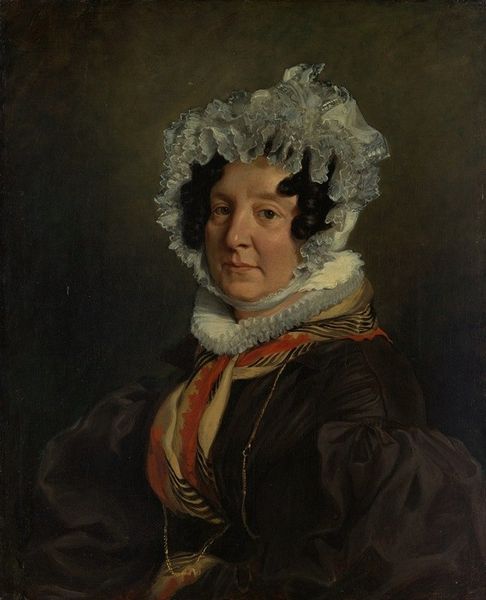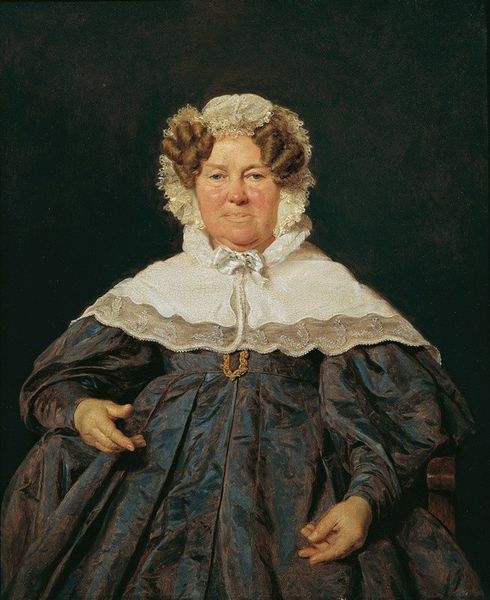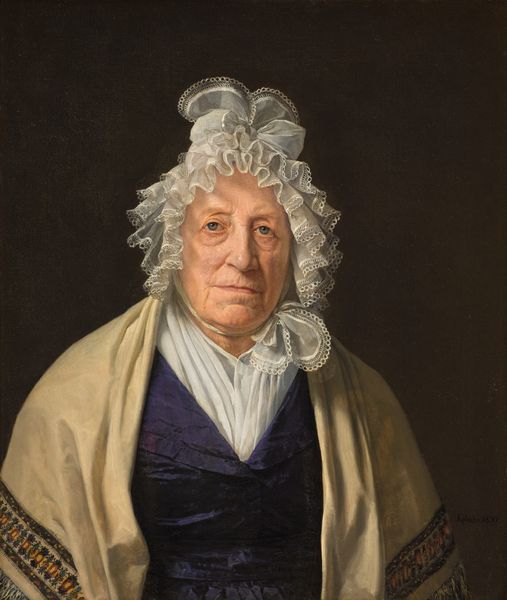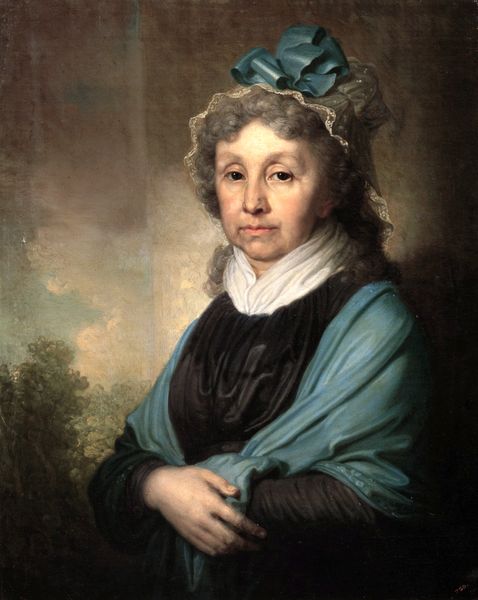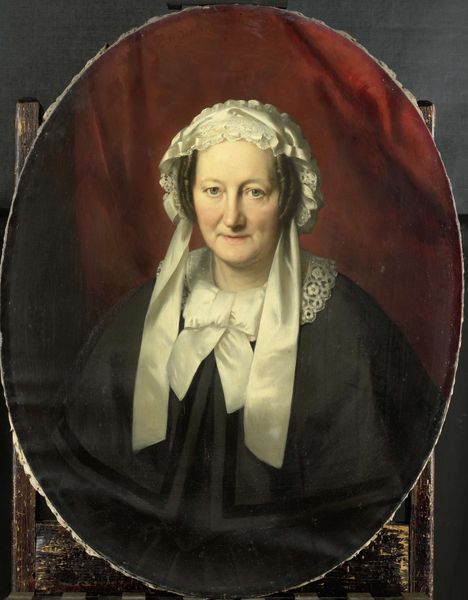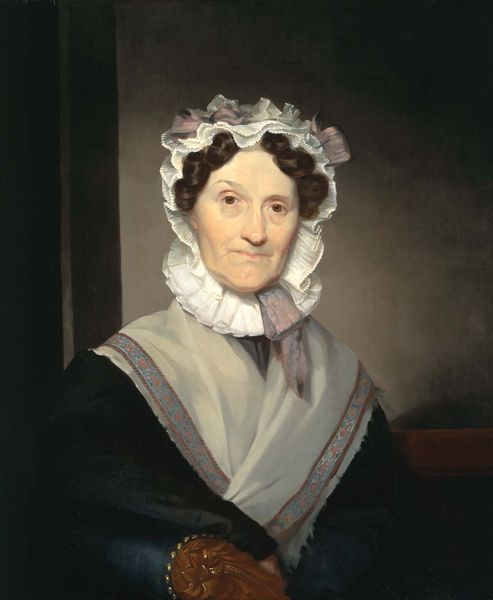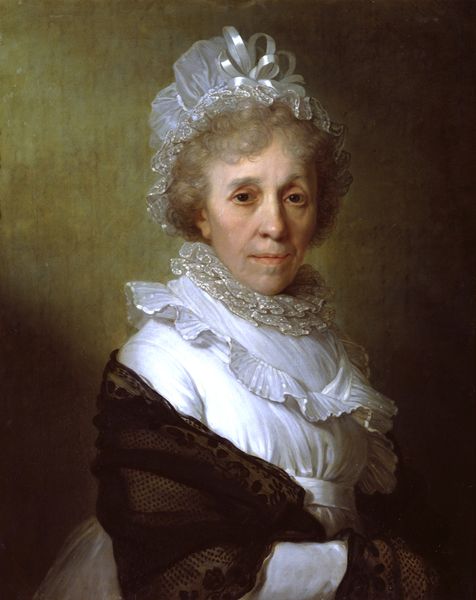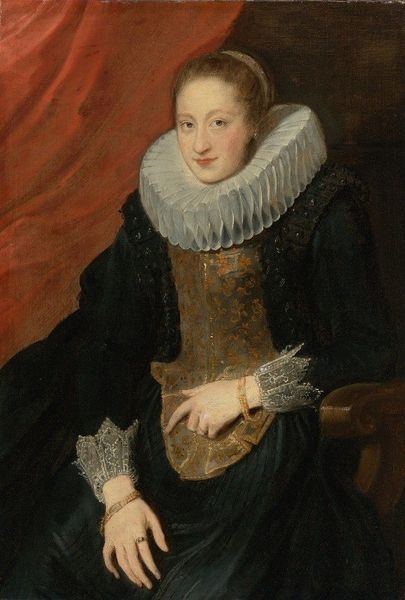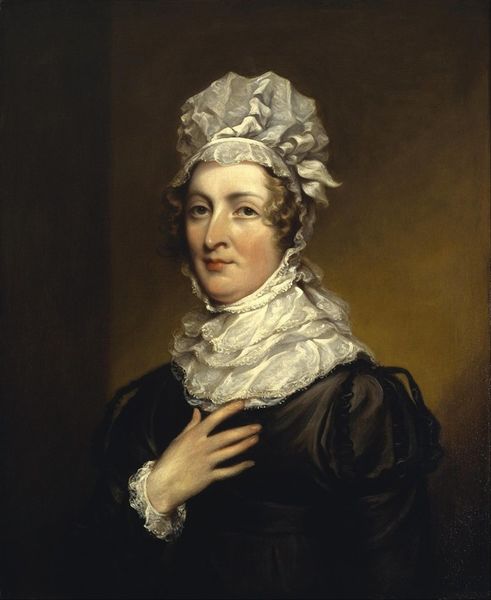
painting
#
portrait
#
figurative
#
painting
#
romanticism
#
history-painting
#
academic-art
#
realism
Copyright: Public Domain: Artvee
Editor: Here we have Ferdinand Georg Waldmüller’s "Elisabeth Waldmüller, the Artist's Mother," created in 1830. It’s a portrait in oil. I am struck by the detail in the lace, but also by the subdued color palette. What can you tell us about this piece? Curator: Waldmüller, celebrated for his Biedermeier realism, presents a complex view here. We must consider this not just as a family portrait, but as a deliberate act within the art world of his time. Notice the sharp realism, particularly in rendering the textures – a departure from the idealized portraits popular then. It signaled Waldmüller's artistic allegiance. Editor: So, it was making a statement about realism versus more romantic styles? Curator: Precisely! The level of detail served as a visual argument. He wasn’t just showing his mother; he was showcasing his artistic skill and pushing for a particular style of representation, a "truth to nature" that challenged the prevailing academic trends favoring idealization. The public display of such works becomes an assertion of artistic values. Editor: I never would have thought a portrait of his mother could be so…political. Curator: In the context of the art world, the style and subject matter combine to suggest not only affection, but a claim for realism as the most "authentic" form of representation. How does the subdued palette contribute to this idea? Editor: It definitely feels more down-to-earth, less glamorous. Like he wanted to paint her as she really was. Curator: And within that act of "authenticity," Waldmüller elevated the everyday subject – his mother – contributing to a shifting hierarchy of what was considered worthy of artistic representation. It reflects evolving social values too. Editor: That makes you see it in a completely new light. Thanks! Curator: Indeed, it demonstrates how seemingly straightforward portraiture can engage in wider debates about art, representation, and social values.
Comments
No comments
Be the first to comment and join the conversation on the ultimate creative platform.
